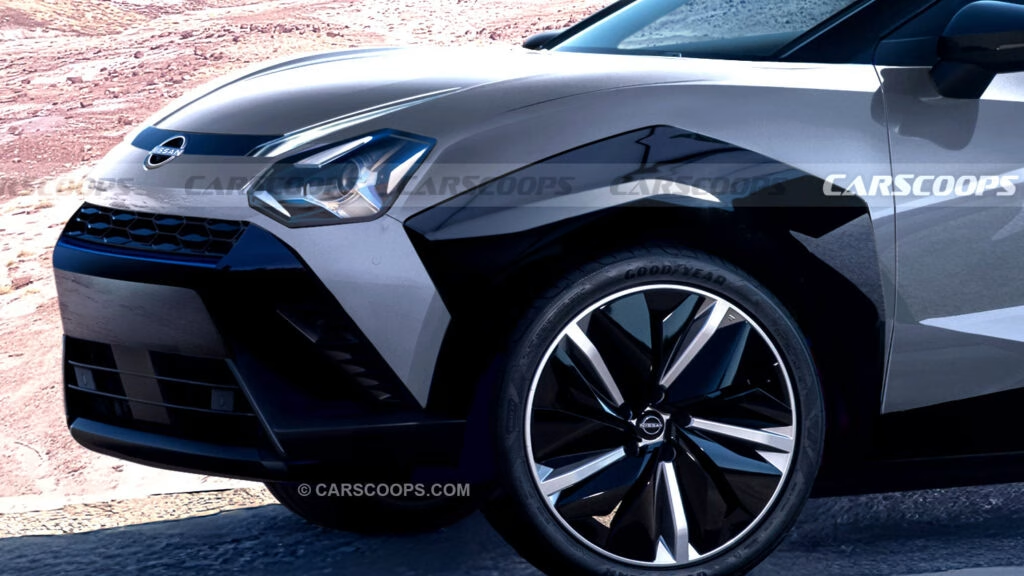Will the Next Nissan Juke Be Gas, Electric, or Both?
If you’re eyeing a compact crossover, you’ve probably noticed the Nissan Juke popping up everywhere—quirky, bold, and surprisingly practical. But with the next-generation Juke on the horizon, there’s a big question: will Nissan go all-in on electric, or keep the gas-powered option alive?
Why Is Nissan Considering Both Gas and Electric Juke Models?
Automakers are in a tricky spot right now. On one hand, there’s mounting pressure to electrify lineups, especially in Europe where emissions targets are tightening. On the other, not every buyer is ready to make the leap to an EV—whether it’s range anxiety, charging infrastructure, or just plain old habit.
Nissan’s answer? Flexibility. Instead of forcing a hard switch, the company is seriously considering selling the new all-electric Juke alongside its familiar gas-powered sibling. Alexandre Armada, who oversees product planning for Nissan Europe’s small cars, recently hinted that keeping the combustion Juke around is very much on the table. The reason is simple: Europe’s transition to electric vehicles isn’t happening at the same pace everywhere. In some regions, EVs are flying off the lot. In others, drivers are sticking with what they know.
What Platform Will the New Juke Use, and Why Does It Matter?
Here’s where things get interesting. The upcoming Juke EV will ride on a shortened version of the CM-EV platform—the same architecture underpinning the Nissan Ariya and Renault Megane E-Tech. This isn’t just a technical detail. It means the Juke will benefit from the latest battery and software tech, plus economies of scale from the Renault-Nissan-Mitsubishi Alliance.
Production will happen at Nissan’s Sunderland plant in the UK, right alongside the Ariya and Leaf. Expect a radical new look, too, with design cues inspired by the wild Hyper Punk Concept. If you thought the current Juke stood out, just wait.
How Are Sales Trends Shaping Nissan’s Strategy?
Let’s talk numbers. The Juke is Nissan’s second-best-selling model in Europe, trailing only the Qashqai. In 2023, the Qashqai moved over 78,000 units, and the Juke isn’t far behind. That’s a lot of loyal customers—many of whom aren’t ready to pay a premium for an EV.
The current Juke lineup offers a 1.0-liter turbocharged three-cylinder (114 hp) and a 1.6-liter hybrid (143 hp). These options hit a sweet spot for buyers who want efficiency without the EV price tag. And with the electric Juke expected to cost more, Nissan risks losing ground if it ditches the gas model too soon.
What Can Buyers Expect from the Juke EV?
Technical specs are still under wraps, but industry insiders suggest the Juke EV could borrow the Ariya’s 63 kWh and 87 kWh battery packs. There’s also talk of a smaller, more affordable 40-55 kWh option—perfect for city dwellers who don’t need massive range.
The competition is fierce. The Juke EV will go head-to-head with the Jeep Avenger EV, Kia EV3, Renault 4 EV, Hyundai Kona Electric, Citroen C3 Aircross, Peugeot e-2008, and the upcoming Ford Puma Gen-E. To stand out, Nissan will need to nail the balance between price, range, and that signature Juke personality.
How Does This Approach Compare to Other Automakers?
Nissan isn’t alone in hedging its bets. Several brands are keeping internal combustion models alive while rolling out EVs. This dual-track strategy helps ease buyers into the future without leaving anyone behind. It’s a smart move, especially as recent data from the European Automobile Manufacturers Association shows that while EV sales are growing, hybrids and efficient gas models still make up a significant chunk of the market.
What’s the Big Takeaway for Shoppers?
If you’re in the market for a compact crossover, the next Nissan Juke is shaping up to offer the best of both worlds. Whether you’re ready for an EV or want to stick with tried-and-true gasoline power, Nissan’s flexible approach means you won’t have to compromise. The big takeaway? Choosing your next car isn’t about perfection—it’s about smarter adjustments. Start with one change this week, and you’ll likely spot the difference by month’s end.

